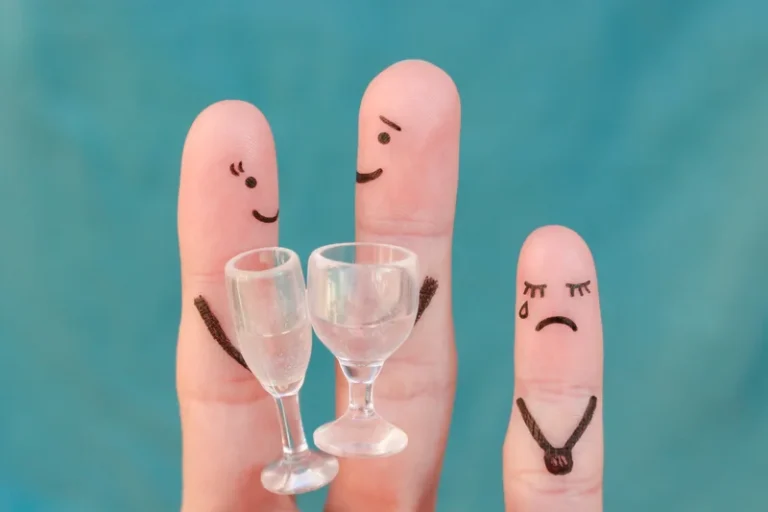Alcohol Use Disorder: What It Is, Symptoms & Treatment

This is of particular concern when you’re taking certain medications that also depress the brain’s function. If your pattern of drinking results in repeated significant distress and problems functioning in your daily life, you likely have alcohol use disorder. However, even a mild disorder can escalate and lead to serious problems, so early treatment is important. As defined by the American Society of Addiction Medicine, alcoholism – like other addictions – is a chronic brain disorder1. Similar to other chronic illnesses like asthma and hypertension, alcoholism is not a condition that goes away after treatment. Instead, alcoholism treatment is meant to help individuals manage the condition throughout their lives so they will not relapse to alcohol use.
- Though at-risk and binge drinking can result in a range of adverse consequences, not all people who engage in these kinds of unhealthy alcohol use have alcohol use disorder.
- Examples include Alcoholics Anonymous, SMART Recovery, and other programs.
- Such e-health tools have been shown to help people overcome alcohol problems.
- The median life expectancy from this point is 10 to 12 years.
- An alcohol use disorder is a chronic brain condition in which a person loses the ability to control their alcohol use, even when faced with social, professional, or health consequences.
- Experts have tried to pinpoint factors like genetics, sex, race, or socioeconomics that may predispose someone to alcohol addiction.
Is there a cure for alcohol use disorder?

Common alcohol triggers include people, places and even smell. Changing these behaviors is often difficult for alcoholics, as it usually involves avoiding places they used to drink or people they would drink with regularly. Based on clinical experience, many health care providers believe that support from friends and family members is important in overcoming alcohol problems. But friends and family may feel unsure about how best to provide the support needed. The groups for family and friends listed in the “Resources” section may be a good starting point.

Alcohol Addiction
- It does not take into account factors such as body composition, ethnicity, sex, race, and age.
- As a person progresses in recovery, they may transition from one level of care to another.
- Alcoholism has been known by a variety of terms, including alcohol abuse and alcohol dependence.
- Most residential treatment programs include individual and group therapy, support groups, educational lectures, family involvement, and activity therapy.
You may want to learn if the program or provider offers medication and whether mental health issues are addressed together with alcohol treatment. Also known as “alcohol counseling,” behavioral treatments involve working with a health care provider to identify and help change the behaviors that lead to alcohol problems. If you think you may have alcohol use disorder, you’re not alone.

What are treatment options for alcoholism?
- If you or someone you love is struggling with alcohol addiction, know that help is available.
- Your doctor may refer you to a counselor or other treatment program to help you learn those skills and coping strategies.
- This broad category of alcohol consumption comprises a continuum of drinking habits including at-risk drinking, binge drinking, and AUD.
- Group therapy, led by a therapist, can give you the benefits of therapy along with the support of other members.
In fact, drinking may not even bring any feeling of pleasure anymore. The drinker is drinking to avoid pain, not to get those feelings of euphoria. When so many things in life become reminders of drinking, it becomes more and more difficult for people to not think about drinking. With continued use of can alcoholism be cured alcohol or drugs, nerve cells in the basal ganglia “scale back” their sensitivity to dopamine, reducing alcohol’s ability to produce the same “high” it once produced. This is how one builds a tolerance to alcohol, which causes people to consume larger amounts to feel the same euphoria they once did.

Residential treatment programs typically include licensed alcohol and drug counselors, social workers, nurses, doctors, and others with expertise and experience in treating alcohol use disorder. For serious alcohol use disorder, you may need a stay at a residential treatment facility. Most residential treatment programs include individual and group therapy, support groups, educational lectures, family involvement, and activity therapy. Similarly, alcoholism can be managed through treatment and recovery with diligence and commitment.
Starting with a Primary Care Provider
After two to three weeks of abstaining from alcohol, fatty deposits disappear and liver biopsies appear normal. Some people may drink alcohol to the point that it causes problems, but they’re not physically dependent on alcohol. Alcoholism, referred to as alcohol use disorder, occurs when someone drinks so much that their body eventually becomes dependent on or addicted to alcohol. Completing detox does not mean someone is “cured” from their alcohol addiction.
How can I prevent alcohol use disorder?
Typically, a diagnosis of alcohol use disorder doesn’t require any other type of diagnostic test. There’s a chance your doctor may order blood work to check your liver function if you show signs or symptoms of liver disease. Symptoms of alcohol use disorder are based on the behaviors and physical outcomes that occur as a result of alcohol addiction. People with alcohol use disorder will continue to drink even when drinking causes negative consequences, like losing a job or destroying relationships with people they love. They may know that their alcohol use negatively affects their lives, but it’s often not enough to make them stop drinking.

Treatment for Alcohol Problems: Finding and Getting Help
The good news is that no matter how severe the problem may seem, most people with AUD can benefit from some form of treatment. Many others substantially reduce their drinking and report fewer alcohol-related problems. These complications are reasons why it’s important to treat alcohol addiction early. Nearly all risks involved with alcohol addiction may be avoidable or treatable, with successful long-term recovery. To learn more about alcohol treatment options and search for quality care near you, please visit the NIAAA Alcohol Treatment Navigator. Severity is based on the number of criteria a person meets based on their symptoms—mild (2–3 criteria), moderate (4–5 criteria), or severe (6 or more criteria).